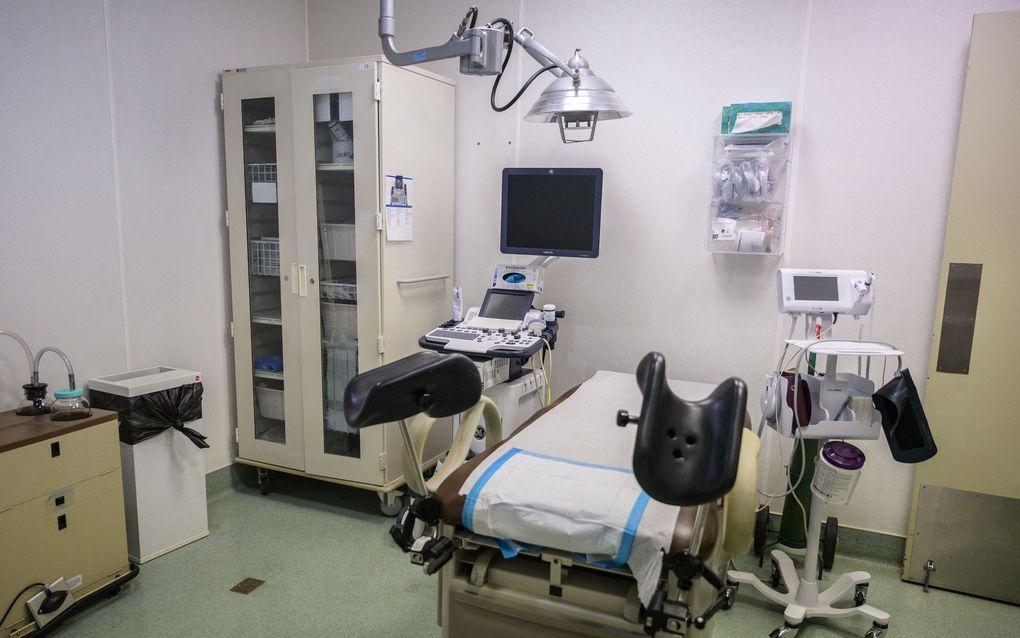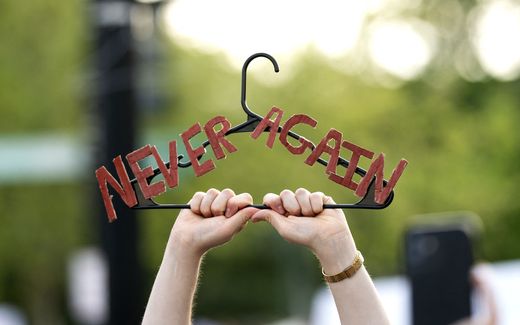Abortion remains a hot topic in Swedish election campaign

Photo AFP, Angela Weiss
Northern Europe
The abortion debate constitutes an important part of the Swedish election campaign this year. Surprisingly, the Christian Democrats explicitly state that they favour the right to abortion in the Constitution. At the same time, other liberal parties stress that, even though they support the option of ending pregnancies, they want to reduce the number of abortions as much as possible.
Although the Christian Democrats in Sweden (KD) were established to counter the pro-choice sentiment in Swedish society at the time, they have made a 180-degree turn concerning the issue. Recently, Christian Democratic politician, Lennart Sacrédeus, received heavy criticism. During the election campaign, he stressed that he wished for more unborn children to be welcomed in life. That is reported by Dagen.
Sacrédeus raised the issue by saying that 37,000 abortions are carried out annually and that more could be done to reduce that number by adoptions and support efforts for pregnant women. According to Sacrédeus, his statements do not contradict the party line. "There is no support in the Christian Democratic Party for changing Swedish abortion legislation. I just think that more support efforts and help with adoptions are necessary."
Withdrawal
Yet, Sacrédeus's statements resulted in a storm of criticism. Sabina Bernhardsson, the KD district manager, wrote a comment published by DN. In it, Bernhardsson stated that the party takes Sacrédeus statements very seriously. "When you are a representative, you represent the party's policy and nothing else. The Christian Democrats stand behind Swedish abortion legislation and have had the same on the issue for decades. These flyers have not been produced or anchored accordingly."
All the pressure caused the politician to withdraw his candidacy for the upcoming elections. That led to satisfaction on behalf of his party leader, Ebba Busch, Varlden Idag writes. Busch is very much in favour of open access to abortion for all women and extensively highlights her stance on abortion in this election campaign. In a TV broadcast, she assured the Christian Democrats would vote for the constitutional right to abortion without reservation.
Loss of votes
The Christian Democratic Party is not doing well, according to some polls. Some expect that the recent internal struggle around Sacrédeus might even lessen the support for the party. In Varlden Idag, Carin Stenström argues that many voters might see the resignation of the politician as a severe democratic loss. "The task of the Riksdag is to reflect different views in the country, not to kill them, as some politicians seem to believe today."
She criticises the lack of profile which is seen in many parties. "The differences in opinion are blurred; attacks and scandals by opponents must decide the election." Stenström sees this same trend in the Christian Democratic party. "Several of those who have had to work against strong headwinds were systemically moved down to a non-elective list position", she writes. The development worries her, as many politicians who dared to speak against the mainstream opinion were "vote magnets for the party."
Political favour for reducing abortions
Surprisingly, despite the heavy criticism that Sacrédeus received for his statement, many parties expressed the same opinion.
Even the Christian Democrats Party, of which members fiercely rejected Sacrédeus's statements, responded to a question from Varlden Idag that they want to reduce the number of abortions. "Unwanted pregnancies need to be prevented via support and information. The abortion numbers in Sweden indicate that we need to do more to ensure that fewer women become unwanted pregnant."
Also, the liberal Social Democratic Party responded affirmatively to whether they wanted the number of abortions in Sweden to decrease. "Yes, it is desirable that involuntary pregnancies become fewer by more people protecting themselves with contraceptives."
Furthermore, the Sweden Democrats want to "strengthen preventive work to reduce the number of unwanted pregnancies." Although they believe that a woman should be able to "decide for herself whether she wants to have an abortion", they also argue that "good education about sexuality and coexistence, as well as good access to contraceptives, contributes to keeping the number of abortions down."
Related Articles






